CBD is fast becoming one of the most popular supplements for humans who want a natural way to promote better health and wellness. From your corner convenience store to your local CVS or Walgreens, companies are rushing to get in on this booming and lucrative business. Amongst those products, you may have also noticed that our furry friends have not been forgotten.
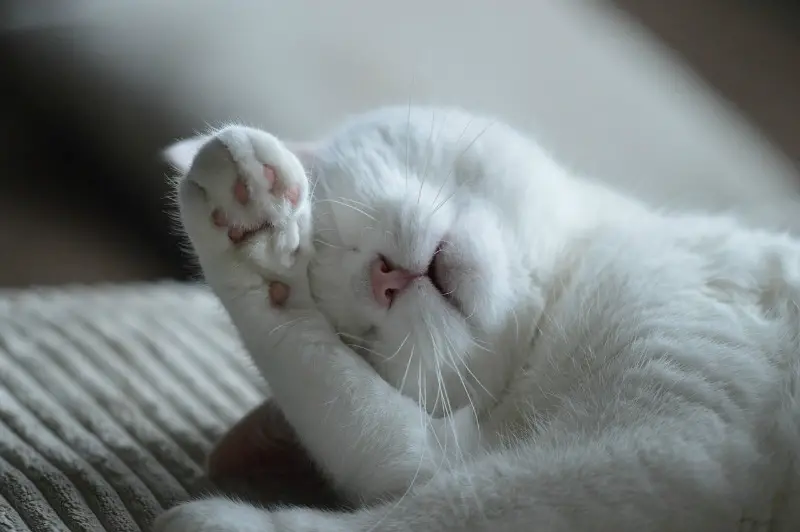
CBD treats for canine companions and drops for finicky felines are also available, but are they safe? While our pets’ systems are different, there are similarities as well. Let’s take a look at how your cat can potentially benefit from adding CBD to their routine.
Where Does CBD Come From?
Cannabidiol, more commonly known as CBD, is one of over a hundred active compounds in the cannabis plant. While the term “cannabis” has been used as synonymous with marijuana for decades, the truth is that cannabis belongs to a much wider plant family that also includes industrial hemp. The 2018 Farm Bill re-legalized industrial hemp and its derivative products at the federal level. This is where the legal CBD products sold across the country come from, not to be confused with high-inducing CBD marijuana products.
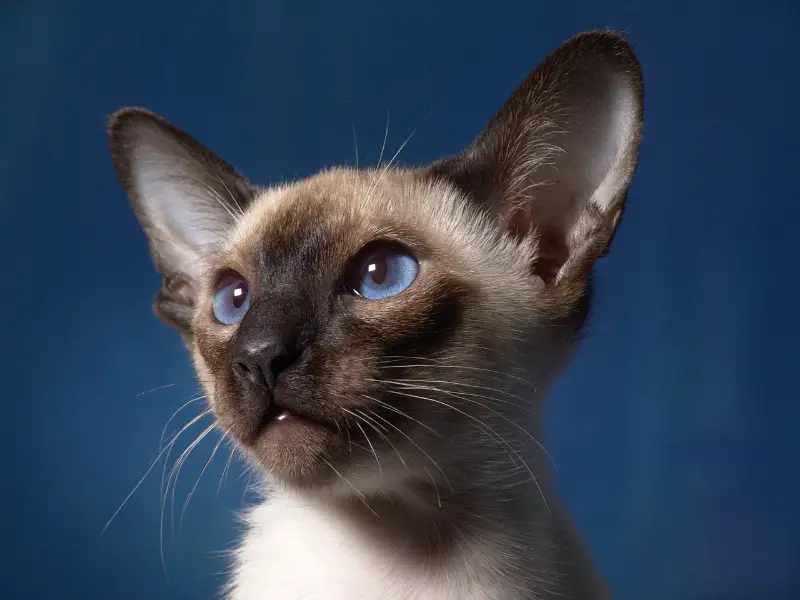
The difference comes down to THC–the psychoactive compound responsible for marijuana’s intoxicating effects. While industrial hemp has 0.3% THC or less by weight, marijuana products can have THC concentrations of 30% or higher. THC can be toxic to our furry friends, so always ensure you’re using hemp-derived CBD products.
So How Does CBD Work for Pets?
Just like humans, our pets have an endocannabinoid system that regulates many of their bodily functions from immunity to how the body interprets pain, fights inflammation, and controls digestion (and that’s just naming a few!). CBD promotes the optimal functioning of this endocannabinoid system, encouraging the proper production of hormones and neurotransmitters for efficient operation.
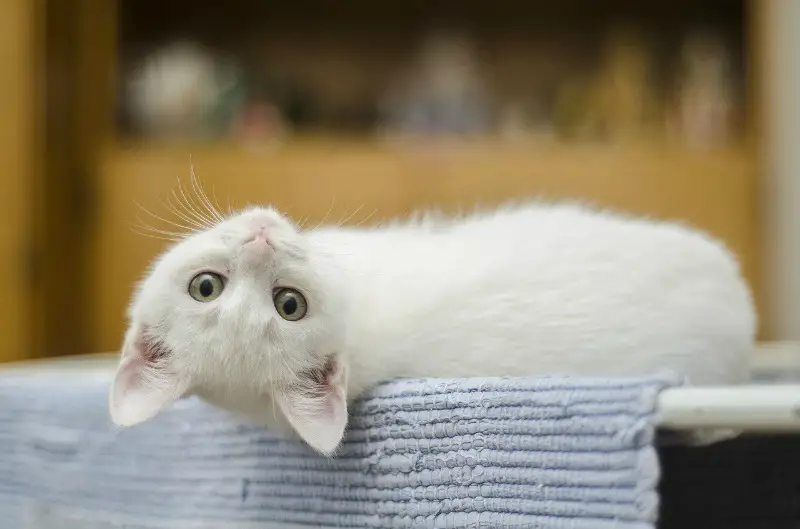
In addition, CBD serves as an analog for some receptors to the neurotransmitter they’re designed for, such as serotonin, one of the chemicals in our brains that moderates our moods and helps fight depression or stress. When used externally, such as with a pet CBD lotion or shampoo, CBD is naturally moisturizing and nourishing as it supplies a healthy dose of Omega fatty acids. When applied topically, it can also help calm inflammation caused by allergies or irritation.
Why is CBD Becoming So Popular?
We all love our pets and want them to live happy, healthy lives free of the pollutants and synthetic chemicals that inundate the world around us. CBD can help with this quest! As an all-natural alternative for wellness, CBD can be used in addition to and/or instead of traditional therapeutic regimens. CBD is generally well-tolerated by pets and may even help your pet avoid chemicals and prescription medications that could be harder on their bodies.
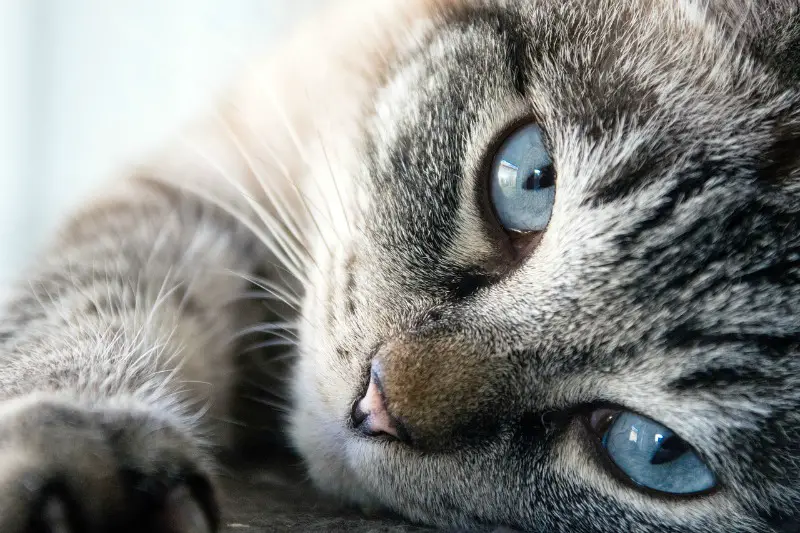
Special Considerations When Using CBD For Your Cat
When choosing to give your cat CBD products, it’s important to keep a few things in mind:
CBD Is Not A Replacement For Proper Vet Care
Not all vets are on-board with CBD for companion animals, either due to personal beliefs or because of their state’s regulatory authorities. Despite this, it’s best to work with your vet for the overall health and wellness of your kitty. This is especially true if you are planning to use CBD as an addition to an already established treatment regimen for a diagnosed medical condition.
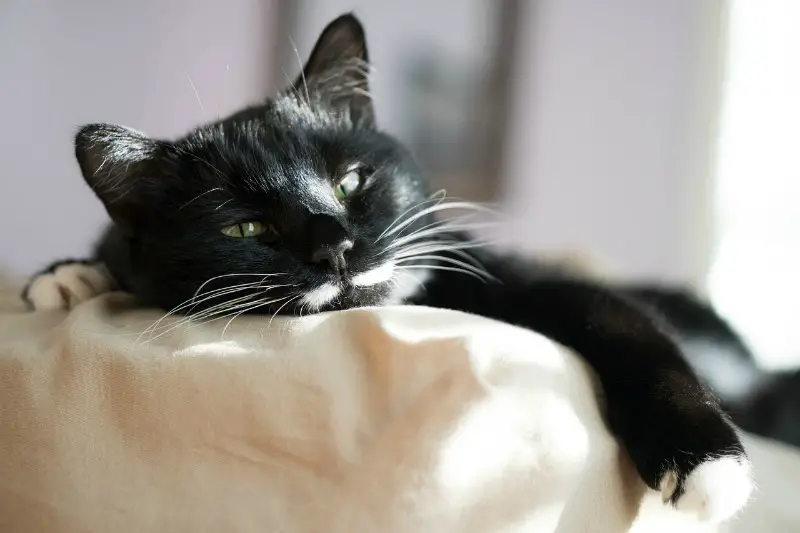
In addition, while CBD has a lot of potential benefits, it’s not a miracle or a cure-all. It’s an active compound, and its effectiveness is based on the organic chemistry going on inside your pet’s body. No matter what your vet believes, it’s important that you two work together to give your cat the best care possible.
Never Use CBD Products Derived From Marijuana
It bears repeating that THC is toxic to cats, so you should avoid products labeled as CBD that are derived from THC marijuana plants. Choose only high-quality, hemp-derived CBD products that offer a guarantee that they have 0.3% THC by weight or less — brands that can guarantee 0.0% or completely THC-free products are even better! Not only are these products legal federally, but they should not expose your pet to toxic levels of THC.
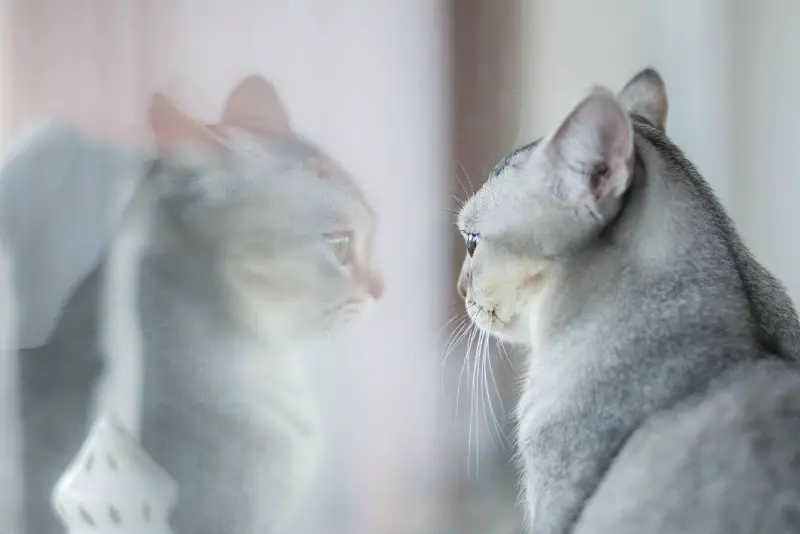
Start Off Low With Dosing
As you research your cat’s needs or get a recommendation from a CBD-friendly vet, you’ll find a dosage range for your cat, often expressed in milligrams-per-kilogram or pound. Pay close attention to this dose, but make the first few doses a quarter of that amount. Slowly increase toward the established dosage until the results you’re after are obtained. This lowers the chance of negative reactions from your feline.
Every Cat Is Different
While CBD is generally considered safe and well-tolerated by most felines, each cat has its own unique biological system. Just as two humans may get different results from a vitamin, supplement, or medication, the degree of effectiveness and the risk of potential side effects can vary cat-to-cat. Luckily, these negative side effects are relatively minor and stop quickly when CBD is discontinued.
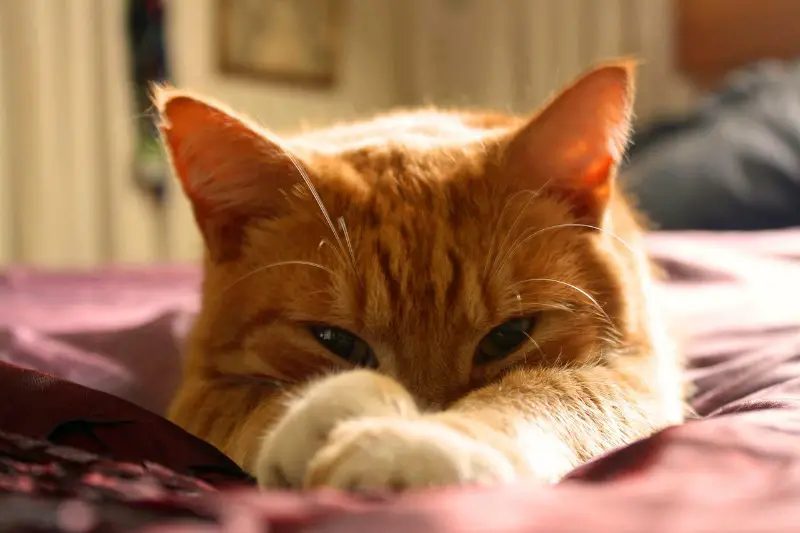
The two most common negative reactions to hemp-derived CBD are:
⦁ Sedation: CBD can be calming, but sometimes it can be too calming. If you find that your cat is overly sleepy or lethargic, make them comfortable and let the sedation pass. You can try again with a smaller dose if you think you just gave them too much or you can halt CBD use entirely.
⦁ Gastric Issues: Oral CBD is absorbed by the stomach and intestines, and sometimes this can cause digestive issues. Nausea, vomiting, or constipation are all possibilities in this case. These also pass rapidly and can be alleviated by lowering the dose or stopping CBD treatment altogether.
Giving Your Cat The Best CBD Possible
Choosing your CBD products carefully will give your cat the best chance at reaping the most benefits from the cannabis plant. Choose a broad-spectrum CBD product that is formulated specifically for felines that contain CBD and other beneficial cannabis compounds. Cats’ metabolisms work differently than humans or dogs, so a product tailored to our feline friends’ needs will give you (and them!) better results.
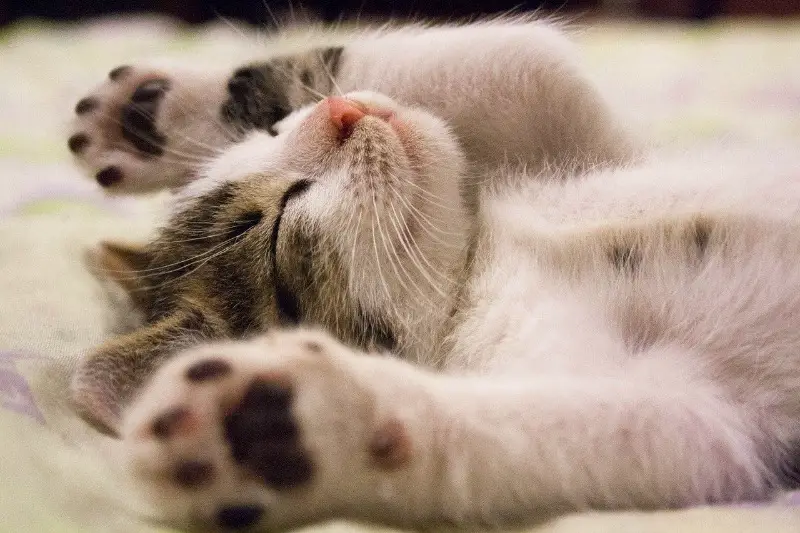
Look for formulas that have been tested under the supervision of veterinary clinics, where they were evaluated by animal health professionals under humane conditions.
CBD can be a big part of helping your feline family member live a longer, fuller life so you both can have many years of love to come.
Author Bio
Special thanks to Aaron who contributed this informative guest post. Aaron (an avid pet lover) is a writer and copy strategist for ElleVet Sciences.

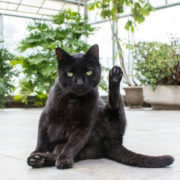


I’d read about using CBD for cats in an article by PetCareRx. But your post has given me a new perspective on the topic. Great read.